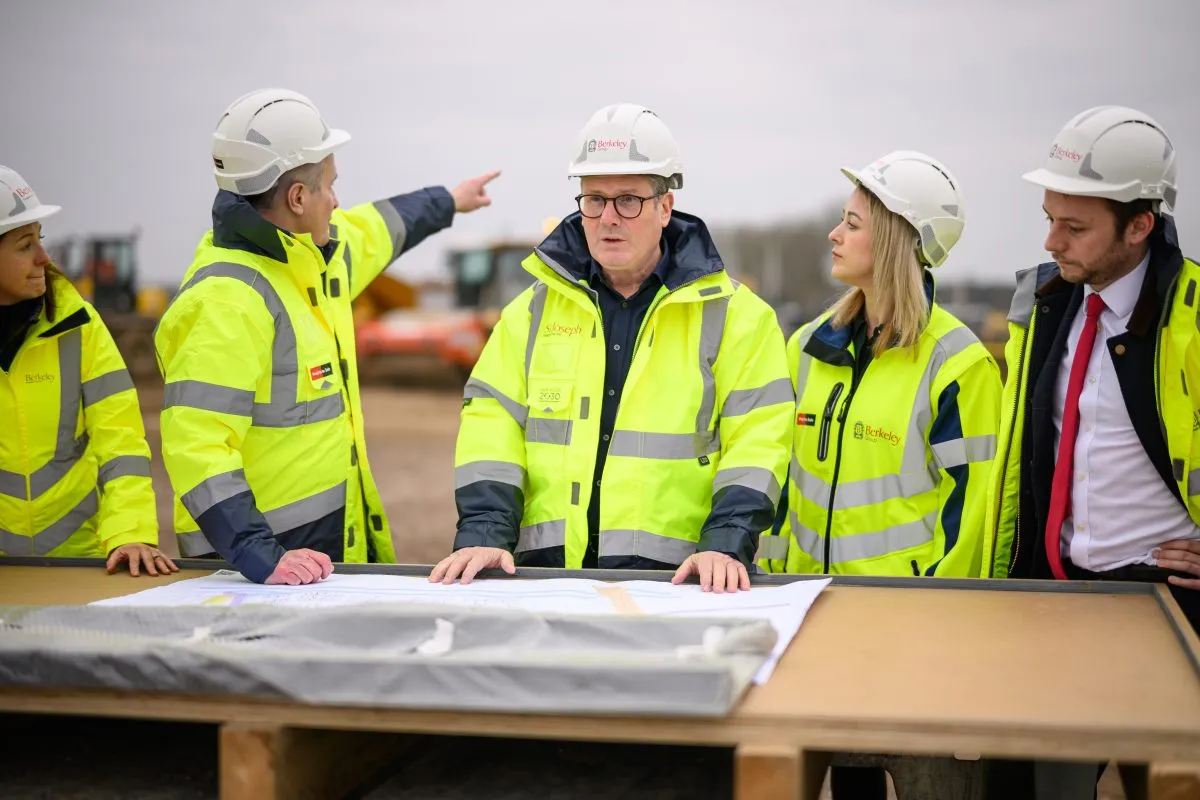By Leon Neal,Saskia Koopman
Copyright cityam

Concrete is everywhere; It’s in the roads we drive on, the buildings we work in, and the infrastructure that shapes the UK’s cities. Yet despite its ubiquity, it’s also one of the hardest materials to make environmentally friendly.
This is the challenge that British construction tech scale-up Converge AI, founded in 2014, is trying to tackle.
Over the past decade, Converge has been building AI-powered tools set to enhance concrete performance and reduce its carbon footprint.
Recognised this month in Tech Nation’s ‘future fifty’ programme, which highlights the UK’s fastest-growing scale-ups, Raphael Scheps, co-founder and chief executive, spoke to City AM about the company’s goal.
“We digitise and carbonise concrete”, he said. “Essentially, we start with a sensor. It gets put in the concrete, and it tracks the performance of the material. It could be like a Fitbit for concrete.”
The data from these sensors feed Converge’s AI models, which predict the performance of different concrete recipes, helping builders choose the mix that is both strong and low in carbon.
From sensors to AI
“We fell into this because we love sensors, the idea that we could get data”, Scheps told City AM.
“We looked at all sorts of industries, like energy, agriculture, mining, and we discovered the built environment. We started realising that we could have a big impact”.
Today, the startup’s flagship platform, ConcreteDNA, integrates real-time monitoring with predictive AI models, aiming to optimise concrete mixes and reduce inefficiencies.
Scheps explained: “Concrete is one of the most consumed materials on the planet. The world around us is made of it. We need to optimise it not just for productivity, but also for carbon”.
Concrete production is responsible for approximately eight per cent of global CO₂ emissions, making it a prime target for decarbonisation efforts.
The platform’s AI models are designed with trust in mind. Scheps argued: “When you’re making a prediction about a concrete recipe that’s going to go into a building, it can’t be too little, too late. It needs to be accurate, and it needs to be explainable”.
He explained that tens of thousands of sensors and millions of data points feed the models, allowing the AI to explain its reasoning to engineers and builders, a step Scheps believes is crucial for adoption.
Navigating a traditional industry
Convincing a traditional sector to embrace high-tech innovation always comes with its hurdles.
“Trying to overturn any market, especially one that’s been around for hundreds of years, comes with challenges,” Scheps stated. “The only thing we’ve seen help is landing the first client. Then, the second and third clients see the proof, and credibility starts to build”.
Converge has primarily focused on high-impact applications, such as data centers and green energy infrastructure.
“We’ve been involved in wind farms and large-scale construction projects,” Scheps said. “It’s good that we’re building that infrastructure, but we need to do it consciously. That’s where AI comes in”.
In May, Converge announced a €19.4m funding round led by ABN AMRO Sustainable Impact Fund, with participation from both existing and new impact investors.
Scheps argued that “his investment round will empower Converge to accelerate decarbonisation across the concrete industry”.
“There’s a lot of AI noise,” he claimed. “The feedback we got was really positive because we have AI built on something that’s real – our sensors – not just publicly available data”.
The UK’s scaling problem
While Scheps remained optimistic about the UK’s tech talent, that he explained he sees gaps in infrastructure investment.
“From an AI perspective, there’s huge potential in the UK. But we need more investment in infrastructure, like data centers, to really compete in the AI race,” he added.
He also highlighted the challenges of government support for startups, noting delays in R&D tax credits and the limited availability of climate-tech funding compared to the US.
“There’s been a lot of changes to the R&D tax credit system”, he said, “and it’s actually become more difficult for legitimate startups to get timely funding”.
“We’ve experienced year-long delays on payouts, and cash flow is king for a startup”, he said.
Yet, he also highlighted the UK’s talent pool for AI and data science as a major advantage. “The challenge is ensuring the industry and government support allows that talent to be fully leveraged”.



